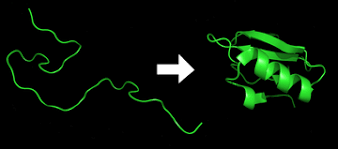The fascinating science of sleep and its role in human evolution
Jaspreet Bindra
It was the Upanishads that introduced me to the kinds of sleep. The Mundaka and the Chandogya Upanishad talk of the ‘four states of consciousness’. The first was Awake, the second was dream-filled sleep, the third was the much sought-after deep sleep, and there was a very mysterious fourth stage. Called Turiya, it is a stage which transcended sleep, in many texts it was referred to as samadh (or samadhi), and is akin to the deepest form of meditation. Only achieved by the ones truly awakened, it was where the foundational Self or Atman is realized, it is ‘measureless, neither cause nor effect, all pervading, without suffering, blissful, changeless, self-luminous, real, intrinsic in all things…’
Modern society, on the other hand, has given sleep a bad rap. Busy as we are, we tend to pride ourselves on how less we sleep, rather than how much. Corporate executives see sleep as a waste of time, children would rather watch TV, teenagers prefer the transcendental wonders of their mobile phone. Nabokov called sleep the “nightly betrayal of reason, humanity, genius”, Arnold Schwarzenegger advised those who want eight hours of it to “sleep faster”, and Margaret Thatcher prided herself in getting by with four hours. Some modern champions repudiate this notion though – Roger Federer is said to sleep for more than 10 hours; so do Lebron James and Usain Bolt.
I chanced upon sleep again through another life-changing read: ‘Why We Sleep: The New Science of Sleep and Dreams’ by British scientist Matt Walker. It made me realise that sleep is a superpower, and it is the third and neglected of the triad of diet, exercise and sleep, which make us healthy and disease-free. In this virus-ridden world, it is perhaps the strongest weapon we have to build immunity, more formidable than the vitamins and turmeric that we are consuming in quantities. It is an overlooked stress-buster, can delay dementia, and can manage our stress and our obesity. While all these facts were new to me, perhaps the most intriguing was that it is sleep that could have caused the evolutionary tree to branch off, and separate men from our monkey cousins.
Before we delve deeper into these enthralling details, let us touch upon sleep itself. Human beings sleep in ninety-minute cycles – each of them comprising light sleep REM, or Rapid Eye Movement, sleep, and non-REM or deep sleep. Deep sleep, as the name suggests, is the blessed, intense sleep that all animals need to rest the days exertions off. As Walker writes: “Deep sleep is a therapeutic state during which we cast off the emotional charge of our experiences, making them easier to bear.” Lack of sleep can affect our cancer-fighting immune cells; one night of short sleep can reduce our immune cells by 70%. Adults aged 45 years or older who sleep less than six hours a night are twice more likely to have a heart attack or stroke in their lifetime, as compared with those sleeping seven or eight hours a night. During deep sleep, deposits of the toxic protein amyloid, which directly cause dementia and Alzheimers, are washed away and cleaned from the brain.
“During deep sleep, your brain goes into this incredible synchronised pattern of rhythmic chanting,” says Walker. “There’s a remarkable unity across the surface of the brain, like a deep, slow mantra, almost like a coma. Vast amounts of memory processing is going on. To produce these brainwaves, hundreds of thousands of cells all sing together, and then go silent, and on and on. Meanwhile, your body settles into this lovely low state of energy, the best blood-pressure medicine you could ever hope for.”
However amazing NREM sleep is, it is REM sleep, which made us human. It is sometimes called paradoxical sleep, because the brain and heart patterns are identical to when you’re awake. This is where short term memory stored in the hippocampus is transferred to long-term memory in other parts of the brain; from its RAM to its hard disk. Here the brain and heart are active, we dream vividly and our eyeballs rapidly move around. In contrast, REM sleep renders our limbs totally inert. This is so that we do not flail around as we dream. REM sleep builds our cognitive abilities, so 80% of all sleep in babies is REM. We sleep to forget, but we also sleep to remember.
On the other hand, only 9% of a monkey’s sleep is REM. REM induced limb-inertness would imply that they would not be able grasp the branches of the trees they sleep on and would fall. They also need to sleep light since they are unprotected from predators. Around 15 million years ago, great apes solved this by making platforms and sleeping securely on them. Immediately their REM sleep percentage increased, building more cognitive ability and consolidating memories. Some apes then started sleeping on the ground, and later, in beds, creating more opportunity for REM sleep and a higher cognitive and memory ability, evolving into humans. Thus, it is the second stage of Upanishadic sleep, the ‘sleep of dreams’ that helped make us human. The mysterious and yet unstudied fourth stage of Turaya could perhaps make us super-human, as our ancient rishis and devatas were. Sleep is a super power.
(This article was first published as an OpEd in Mint on Nov 26, 2020)


